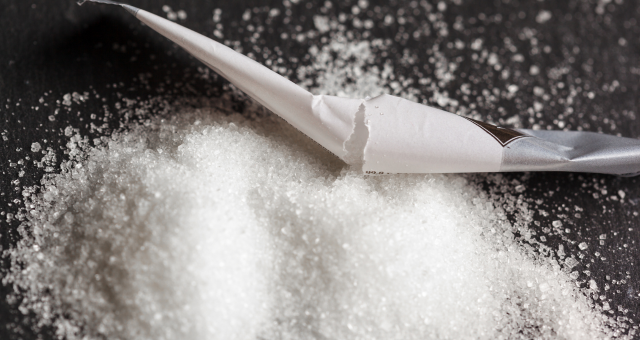Medically Reviewed by Lucas Rosa, PhD in Molecular Biology
Whether it’s your morning coffee, a mid-afternoon tea, or an energy drink before a workout, caffeine is deeply woven into our daily routines. It perks us up, sharpens focus, and even helps some people feel more alert and motivated. But while caffeine can give you a temporary boost, it also has powerful effects on your hormones – some helpful, others potentially disruptive.
If you’re struggling with anxiety, fatigue, poor sleep, weight gain, or irregular cycles, your caffeine intake could be playing a role. In this article, we’ll explore how caffeine affects hormonal health, which hormones it impacts most, signs that you may be overdoing it, and how to find a balance that supports both your energy and your hormones.
What Is Caffeine and How Does It Work?
Caffeine is a natural stimulant found in coffee beans, tea leaves, cacao, and certain herbs like guarana. It works by blocking adenosine – a neurotransmitter that signals tiredness. This creates a feeling of alertness and temporarily increases the activity of dopamine and norepinephrine, which improve focus and mood.
Caffeine also stimulates the central nervous system and activates the body’s stress response. This is why a strong cup of coffee can mimic the feeling of being on high alert – it revs up the same pathways your body uses in stressful situations.
While moderate caffeine consumption can have cognitive and physical benefits, too much can overwork your system, especially when it comes to hormone regulation.

How Caffeine Affects Hormones
Caffeine doesn’t just give you energy – it influences several key hormones that affect your mood, metabolism, sleep, and reproductive health.
- Cortisol: Caffeine increases cortisol, the body’s main stress hormone. When consumed first thing in the morning or in high amounts, it can raise cortisol levels even more than your natural stress response would. Over time, this can lead to fatigue, blood sugar imbalances, and increased belly fat. (1)
- Adrenaline: Caffeine stimulates adrenaline, which is why it creates a feeling of alertness. While useful in short bursts, frequent stimulation can leave you feeling anxious, jittery, or exhausted once the effect wears off. (2)
- Insulin: Caffeine may cause a temporary increase in blood sugar, which can lead to a spike in insulin. If this happens repeatedly, it could reduce insulin sensitivity – making it harder to manage weight and energy levels. (3)
- Estrogen: Some studies suggest that caffeine affects how estrogen is metabolized, depending on factors like genetics and sex. In those assigned female at birth, high caffeine intake may alter estrogen levels, particularly in those with hormonal imbalances or reproductive conditions. (4)
- Melatonin: Caffeine can interfere with melatonin production, especially when consumed in the afternoon or evening. This can delay sleep onset, reduce deep sleep, and shift your body’s natural circadian rhythm. (5)
How Caffeine Disrupts Hormonal Balance
While your body can handle small amounts of caffeine, problems arise when it’s consumed excessively or at the wrong times. Here’s how it can disrupt hormonal balance:
- It keeps cortisol high throughout the day, preventing your body from winding down and recovering.
- It can make the body think it’s in a constant state of stress, leading to fatigue, anxiety, or burnout.
- It interferes with blood sugar regulation, which affects insulin and appetite hormones like ghrelin and leptin.
- It reduces sleep quality, which throws off the natural rhythm of hormone production.
- In sensitive individuals, caffeine may worsen PMS, increase breast tenderness, or delay ovulation.
The impact is even stronger when combined with poor sleep, high stress, or an existing hormonal condition like PCOS, adrenal fatigue, or thyroid imbalance.

Signs You May Be Having Too Much Caffeine
It’s not always easy to tell when caffeine is the problem, but your body will usually give you hints. Common signs of overconsumption include:
- Feeling anxious, restless, or on edge
- Trouble falling or staying asleep
- Midday crashes after morning caffeine
- Heart palpitations or jitters
- Mood swings or irritability
- Increased cravings, especially for sugar or carbs
- Irregular menstrual cycles or worsened PMS
- Feeling tired despite drinking more caffeine
If you’re relying on multiple cups just to feel normal or get through the day, your hormones may already be under pressure.
Daily Habits for a Healthier Relationship with Caffeine
Caffeine can be part of a balanced lifestyle, but small changes in how and when you consume it can make a big difference in how your hormones respond. These practical habits can help you enjoy your daily dose without sending your body into overdrive.
Set a caffeine cutoff time
To avoid sleep disruptions, stop drinking caffeine by early afternoon – ideally before 2 or 3 p.m. Caffeine has a half-life of several hours, meaning it can still be in your system well into the evening. Late-day caffeine interferes with melatonin production, making it harder to fall asleep and stay asleep. (6)
Choose lower-caffeine or calming alternatives
If you notice sensitivity to caffeine – like jitteriness, anxiety, or trouble sleeping – try swapping some of your coffee for gentler options. Matcha has less caffeine and contains L-theanine, which promotes calm focus. Herbal teas like rooibos, lemon balm, or tulsi offer comfort without overstimulating your system.
Watch for hidden caffeine sources
Caffeine hides in more than just coffee. Energy drinks, sodas, green and black teas, chocolate, and some supplements may contain enough caffeine to impact your sleep and stress levels. Check labels and track your total intake if you’re experiencing symptoms of hormonal imbalance.
Support adrenal recovery with nutrient-rich foods
If you’ve been relying heavily on caffeine to get through the day, your adrenal system may be overworked. Help it recover by eating foods rich in B vitamins, magnesium, and vitamin C—like leafy greens, avocados, citrus fruits, and nuts. These nutrients support hormone production and reduce your dependence on stimulants.

Tune into your body’s signals
Your body knows when it’s had too much. If caffeine leaves you feeling anxious, drained, irritable, or restless, it’s a sign to reassess. Some people metabolize caffeine slower than others, so your “safe” dose may be different from someone else’s. Start noticing how you feel after your drinks – and adjust accordingly.
By adjusting how you consume caffeine, you can support smoother hormone function, better sleep, improved focus, and more stable energy levels – without giving up your favorite morning routine.
Take Away
Caffeine isn’t bad – it just needs to be used with awareness. In moderation, it can boost mental clarity, enhance performance, and provide a comforting daily ritual. But when it’s overused or poorly timed, it can disrupt the very hormones that help you stay balanced, focused, and calm.
By tuning in to how your body responds and making simple adjustments, you can enjoy your favorite drinks while supporting long-term hormonal health. Whether you’re trying to get better sleep, ease anxiety, or regulate your cycle, cutting back just a little on caffeine may give your body the space it needs to feel more like itself again.
References
- Lovallo WR, Whitsett TL, al’Absi M, Sung BH, Vincent AS, Wilson MF. Caffeine stimulation of cortisol secretion across the waking hours in relation to caffeine intake levels. Psychosom Med. 2005 Sep-Oct;67(5):734-9. doi: 10.1097/01.psy.0000181270.20036.06. PMID: 16204431; PMCID: PMC2257922.
- Lane JD, Pieper CF, Phillips-Bute BG, Bryant JE, Kuhn CM. Caffeine affects cardiovascular and neuroendocrine activation at work and home. Psychosom Med. 2002 Jul-Aug;64(4):595-603. doi: 10.1097/01.psy.0000021946.90613.db. PMID: 12140349.
- Moon SM, Joo MJ, Lee YS, Kim MG. Effects of Coffee Consumption on Insulin Resistance and Sensitivity: A Meta-Analysis. Nutrients. 2021 Nov 8;13(11):3976. doi: 10.3390/nu13113976. PMID: 34836231; PMCID: PMC8619770.
- Sisti JS, Hankinson SE, Caporaso NE, Gu F, Tamimi RM, Rosner B, Xu X, Ziegler R, Eliassen AH. Caffeine, coffee, and tea intake and urinary estrogens and estrogen metabolites in premenopausal women. Cancer Epidemiol Biomarkers Prev. 2015 Aug;24(8):1174-83. doi: 10.1158/1055-9965.EPI-15-0246. Epub 2015 Jun 10. PMID: 26063478; PMCID: PMC4526325.
- Kenneth P Wright, Pietro Badia, Bryan L Myers, Steven C Plenzler, Milton Hakel, Caffeine and light effects on nighttime melatonin and temperature levels in sleep-deprived humans, Brain Research, Volume 747, Issue 1, 1997, Pages 78-84, ISSN 0006-8993, https://doi.org/10.1016/S0006-8993(96)01268-1.
- Drake, Christopher, et al. “Caffeine Effects on Sleep Taken 0, 3, or 6 Hours before Going to Bed.” Journal of Clinical Sleep Medicine, vol. 09, no. 11, 15 Nov. 2013, https://doi.org/10.5664/jcsm.3170.
Check Out
HF Swaps
Better products for better hormone health.







